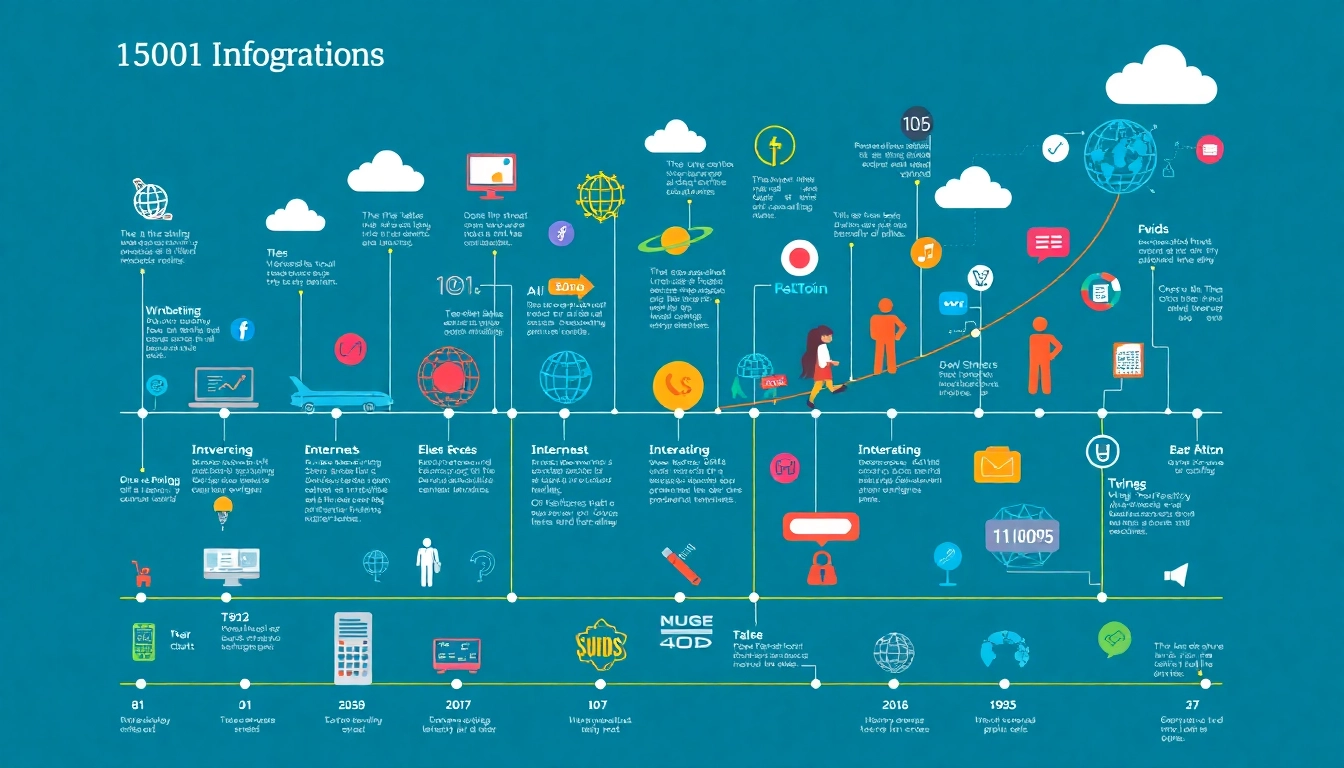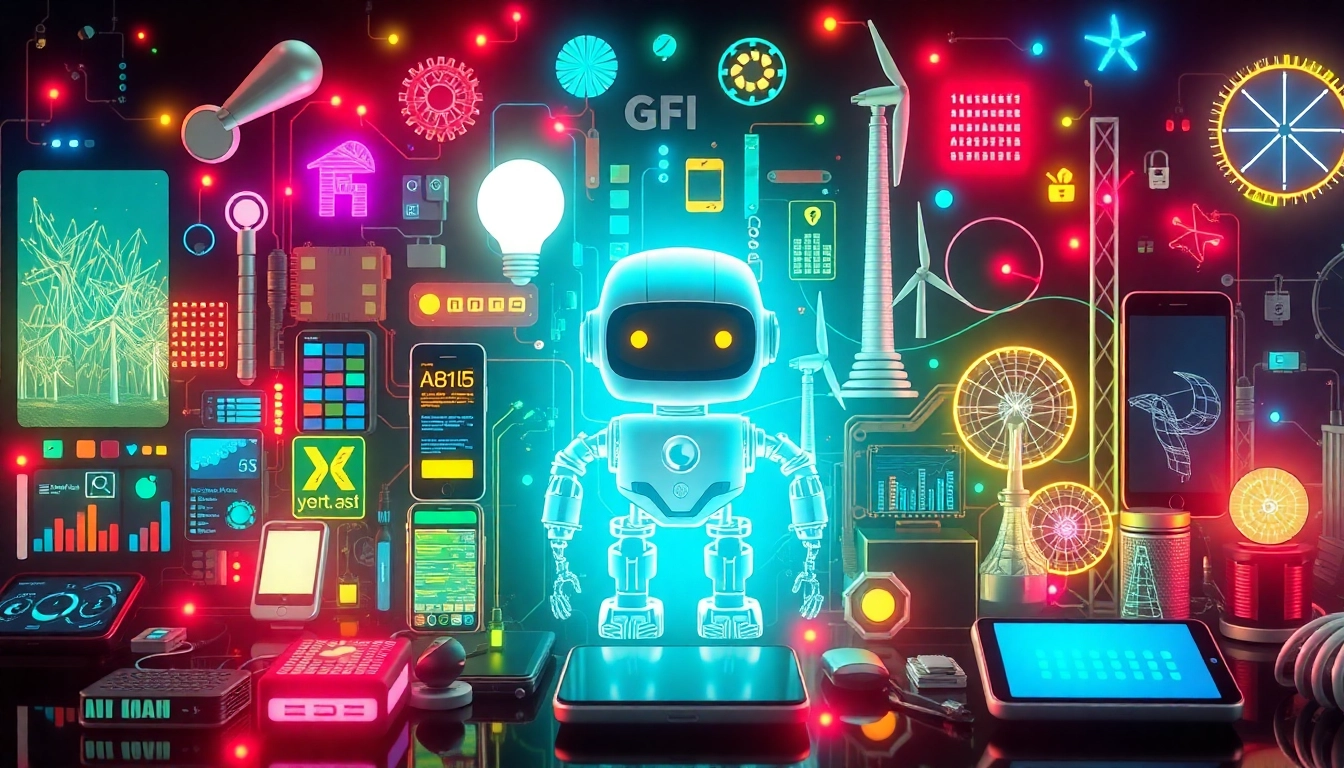In today’s rapidly evolving world, technology is the driving force behind innovation, economic growth, and societal change. From smartphones to artificial intelligence, technological advancements are transforming how we live, work, and communicate. Understanding what technology truly is, its main types, and how it influences every aspect of our lives is essential for navigating the future. This comprehensive guide explores the depths of technology, its evolution, emerging trends, and its profound impact on society.
What Is Technology? A Complete Definition and Overview
Defining Technology: Basic Concepts and Origins
At its core, technology refers to the application of scientific knowledge for practical purposes. It encompasses tools, machinery, systems, and processes that help solve problems, improve efficiency, and enhance the quality of life. Historically, technology has its roots in early human inventions such as stone tools, fire, and agriculture, evolving through the ages into complex systems like computers and space exploration devices. Today, technology is a broad and dynamic field that influences nearly every facet of society.
Historical Evolution of Technology
The journey of technology spans thousands of years. The Agricultural Revolution marked a shift from manual labor to mechanized farming. The Industrial Revolution introduced mass production and powered the modern economy. The 20th century witnessed rapid advancements in electronics, computing, and telecommunications, laying the foundation for the digital age. Recent decades have seen exponential growth in AI development, IoT applications, and renewable energy tech. Each phase has built upon previous innovations, propelling humanity into an era of unprecedented digital innovation.
Importance of Technology in Modern Society
Technology is vital for societal progress. It enhances healthcare through advanced diagnostics, boosts economic productivity, and facilitates global communication. Moreover, it addresses global challenges like climate change and resource scarcity. As a core driver of digital innovation, technology shapes cultural norms, influences political decisions, and creates new opportunities for education and employment.
Types of Technology: From Traditional to Cutting-Edge
Information and Communication Technologies (ICT)
ICT includes the internet, mobile devices, and telecommunications infrastructure. It revolutionized how humans share information, enabling instant communication across the globe. Examples include social media platforms, cloud computing, and 5G networks, all of which facilitate real-time collaboration and access to data.
Emerging Technologies: AI, Blockchain, IoT
Emerging tech encompasses innovations that are reshaping industries:
- Artificial Intelligence (AI): Machines that mimic human intelligence, enabling automation, data analysis, and personalized experiences.
- Blockchain: Distributed ledger technology that ensures transparency and security in transactions, underpinning cryptocurrencies like Bitcoin.
- Internet of Things (IoT): Networked devices and sensors that collect and exchange data, optimizing everything from smart homes to industrial processes.
Industrial and Consumer Technologies
Industrial tech includes automation systems, robotics, and advanced manufacturing techniques. Consumer tech covers personal devices like smartphones, wearables, and smart appliances. The convergence of these technologies creates seamless experiences and boosts productivity.
Impact of Technology on Various Sectors
Business and Economy
Technology fuels business growth through digital marketing, e-commerce, and data analytics. It enhances supply chain efficiency and enables remote work, especially vital during global disruptions like pandemics.
Healthcare and Medicine
Technological innovations such as telemedicine, robotic surgeries, and AI-powered diagnostics improve patient outcomes and reduce costs. Wearable health devices enable continuous monitoring, promoting proactive healthcare.
Education and Learning
Digital platforms, virtual classrooms, and AI tutors democratize access to knowledge. They foster personalized learning experiences and prepare students for future tech-driven job markets.
Future of Technology: Trends and Predictions
Artificial Intelligence and Automation
AI development continues at a breakneck pace, promising smarter virtual assistants, autonomous vehicles, and advanced robotics. Automation will further streamline industries, reducing human error and increasing efficiency.
Quantum Computing and New Frontiers
Quantum computing aims to solve complex problems beyond classical computers’ reach. It could revolutionize cryptography, material science, and drug discovery, opening new frontiers in technological innovation.
Ethical Considerations and Societal Impact
As technology advances, ethical issues arise concerning data privacy, AI biases, and job displacement. Ensuring responsible innovation and inclusive growth is critical for harnessing tech’s full potential.
Frequently Asked Questions About Technology
1. How has technology changed over the last decade?
Over the past ten years, technology has seen rapid growth in areas like AI, IoT, and renewable energy tech. Smartphones have become more powerful, 5G networks enable faster connectivity, and smart devices are integrated into daily life, transforming how we communicate, work, and entertain ourselves.
2. What are the most disruptive technologies today?
Currently, AI, blockchain, and IoT are among the most disruptive. They are redefining industries such as finance, healthcare, and manufacturing by enabling automation, transparency, and data-driven decision-making.
3. How can technology improve everyday life?
Technology enhances convenience through smart home devices, improves health via wearable tech, and increases access to information with online education. It also fosters social connections and streamlines daily tasks.
4. What are the ethical concerns related to new technologies?
Key concerns include data privacy, AI bias, job automation, and the environmental impact of tech manufacturing. Developing ethical guidelines and regulations is essential for responsible innovation.
5. How will emerging technologies shape the future?
Emerging tech like quantum computing, AI, and advanced robotics will create new industries, improve existing ones, and pose societal challenges. Preparing for these changes involves fostering innovation while addressing ethical and societal implications.
Conclusion: Embracing the Future of Technology
Technology is not just a tool but a catalyst for progress, shaping the fabric of modern society and paving the way for future innovations. Staying informed about current trends and understanding the broad scope of technological advancements enables individuals and organizations to adapt and thrive. As we look ahead, embracing digital innovation, AI development, IoT applications, and other emerging tech trends will be essential for harnessing technology’s full potential. To stay updated and explore more on how technology is transforming our world, visit TechDee.



